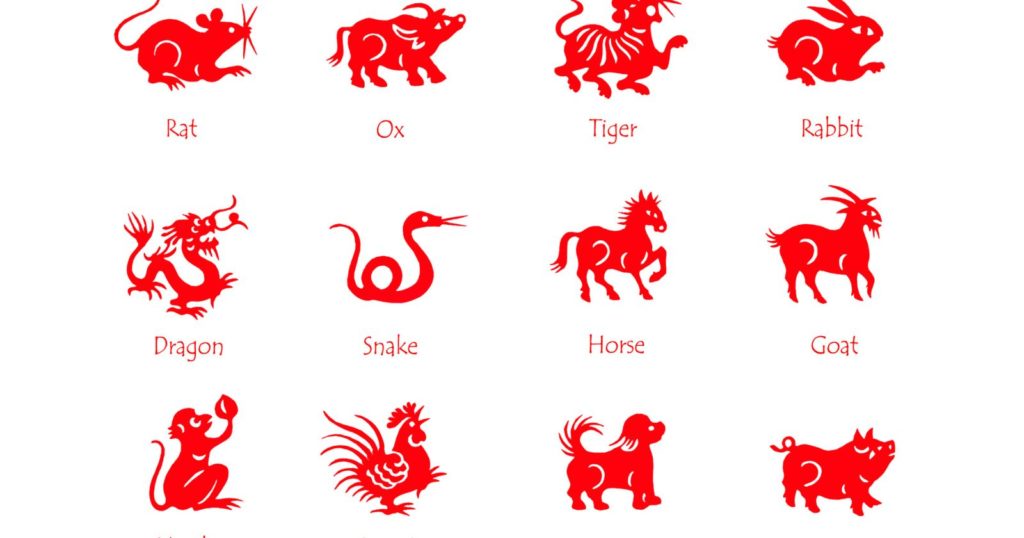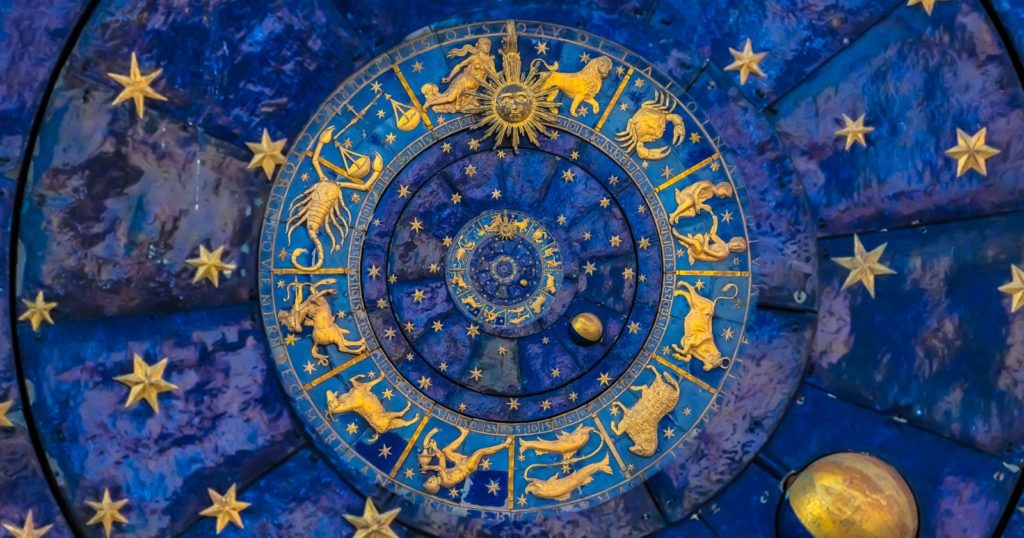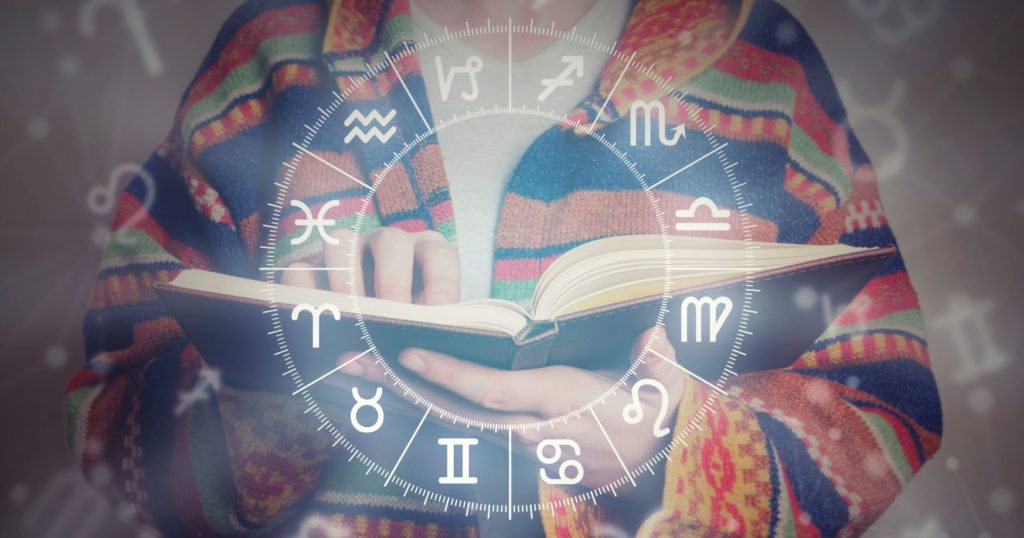As dawn broke over the serene Beijing skyline, I found myself stepping onto the ancient, cobblestone path leading to the Temple of Heaven, a monumental testament to China’s rich cultural history. Little did I know that this experience would be my initiation into the enigmatic world of the Chinese Zodiac.
The temple complex, filled with tranquil energy and the hushed whisperings of the ancient trees, unfolded a spectacular array of cultural treasures, each telling a story of its own. Among these captivating narratives, what caught my attention most was the Circle of Heaven, a mysterious stone carving adorned with twelve intricate animals, each with its own unique character and charm. I was about to uncover the mystical journey of the Chinese Zodiac.
The Chinese Zodiac, or Shēngxiào, is a complex astrological system intricately woven into the fabric of Chinese culture. Based on a twelve-year lunar cycle, each year is symbolized by a unique animal sign, and each sign encapsulates certain characteristics believed to influence a person’s destiny, personality, and relationships. The Zodiac animals – the Rat, Ox, Tiger, Rabbit, Dragon, Snake, Horse, Goat, Monkey, Rooster, Dog, and Pig, in that order, are more than just symbols. They are carriers of ancient wisdom, shedding light on human behaviors, emotions, and tendencies.
I found myself intrigued by this concept, drawn towards the intersection of astrology, mythology, and culture that these twelve animals represented. The Chinese Zodiac, I realized, was not a rigid system of predictions, but a lens through which one could explore the vast landscape of the human psyche, deepening their understanding of the self and others. It was as much about introspection and self-improvement as it was about fortune-telling.
Thus, my journey into the enigmatic labyrinth of the Chinese Zodiac began, and with every step, I discovered new layers of understanding, peeling back the veil of time to uncover stories, legends, and wisdom passed down through generations. It was a journey into a world of myth, symbolism, and magic, a world where celestial animals spoke profound truths about our very human existence. And today, I invite you to join me on this fascinating journey. Let us unravel together the mysteries of the Chinese Zodiac.
A Journey Back in Time: Origins of the Chinese Zodiac
Stepping into the world of the Chinese Zodiac is like opening an ancient scroll filled with mesmerizing tales and enigmatic riddles. The Zodiac’s origins trace back to the Han Dynasty (202 BC – 220 AD), making it one of the oldest known horoscope systems in the world.
According to legend, the story of the Chinese Zodiac begins with the Jade Emperor, the ruler of all gods in Chinese mythology. The Emperor decided to create a time measurement system, but he was unsure of how to do it. Therefore, he proposed a race involving all animals. The first twelve to cross the mighty river would have a year named in their honor.
The Rat, being small and not a strong swimmer, convinced the hardworking Ox to carry him across the river. As they neared the opposite bank, the cunning Rat jumped off the Ox and crossed the finish line first. Following him were the Ox, Tiger, Rabbit, Dragon, Snake, Horse, Goat, Monkey, Rooster, Dog, and lastly, the Pig, each earning their place in the Chinese Zodiac according to the order in which they finished the race.
The Zodiac, thus, came to be tied to the lunar calendar, with each animal symbolizing a year in a twelve-year cycle. The years were named after these animals, and it was believed that individuals born under a certain animal’s year would inherit the traits and qualities of that creature.
But the Chinese Zodiac is not only based on years; it’s a complex system intertwining the lunar calendar with elements of yin and yang, the five elements (wood, fire, earth, metal, and water), and the 12 earthly branches (the animals). This multidimensional structure makes the Chinese Zodiac a comprehensive, intricate system of understanding personalities, relationships, and predicting future events.
Studying the origins of the Chinese Zodiac, one realizes that it is much more than an astrological system. It is a vivid illustration of ancient Chinese philosophy and cosmology, embodying the harmony between heaven, earth, and water. It underlines the Chinese worldview of balance and cyclical time, offering valuable insights into the culture and beliefs of this ancient civilization.
The Chinese Zodiac, therefore, stands as a testament to China’s rich historical and cultural legacy. It’s a time-honored tradition that weaves together myth, astrology, and philosophy, inviting us to navigate the labyrinth of human existence, one Zodiac sign at a time. As we delve deeper into this astrological system, we continue our journey through time, unearthing more about the unique traits, strengths, and weaknesses of each Zodiac animal.
Beyond simply a system of prediction, the Chinese Zodiac offers guidance and wisdom, allowing us to make sense of our experiences, relationships, and personal identities. The Zodiac animals provide a cosmic mirror, reflecting both the observable world and the hidden aspects of our character. Each sign encompasses a rich tapestry of qualities and tendencies that shape our outlook, influence our decisions, and affect our interpersonal relationships.
With its roots firmly embedded in Chinese folklore and mythology, the Chinese Zodiac has captivated hearts and minds for centuries. It endures as an integral part of Chinese culture, a constant thread running through the vibrant fabric of the country’s festivals, arts, literature, and daily life.
Even today, the Zodiac influences many aspects of Chinese society, from marriage and family planning to career choices and personality assessments. It is often invoked during the Chinese New Year, a grand celebration where the animal of the coming year takes the center stage in decorations, gifts, and ceremonies.
As we further unravel the mysteries of the Chinese Zodiac, we come to appreciate its depth, complexity, and cultural significance. It invites us on an enchanting journey of discovery and understanding, enabling us to connect with ancient wisdom, cultural heritage, and the intricate mosaic of human nature. Whether we are the ambitious Rat, the resilient Ox, the brave Tiger, or the compassionate Rabbit, the Chinese Zodiac offers us a pathway to explore ourselves and our place in the cosmos.
The (12) Animals of the Zodiac: Detailed Profiles
Let’s delve into the intriguing profiles of the twelve zodiac animals, each of which lends a unique essence to the intricate tapestry of the Chinese Zodiac.
- Rat (鼠—Shǔ)
Years: 1924, 1936, 1948, 1960, 1972, 1984, 1996, 2008, 2020
Quick-witted and resourceful, Rats are known for their keen intellect and adaptability. They are curious individuals with a flair for socializing and a knack for seizing opportunities. - Ox (牛—Niú)
Years: 1925, 1937, 1949, 1961, 1973, 1985, 1997, 2009, 2021
Oxen are the embodiment of persistence and hard work. They are reliable, steady, and methodical, often demonstrating a high degree of determination and resilience. - Tiger (虎—Hǔ)
Years: 1926, 1938, 1950, 1962, 1974, 1986, 1998, 2010, 2022
Tigers are brave, competitive, and unpredictable. They are natural leaders who thrive on challenges, often displaying great courage and self-confidence. - Rabbit (兔—Tù)
Years: 1927, 1939, 1951, 1963, 1975, 1987, 1999, 2011, 2023
Rabbits are gentle, quiet, and elegant. They are well-liked for their kindness, sensitivity, and prudent nature. - Dragon (龙—Lóng)
Years: 1928, 1940, 1952, 1964, 1976, 1988, 2000, 2012, 2024
Dragons are enthusiastic, confident, and intelligent. They are charismatic leaders, often inspiring others with their ambition and idealism. - Snake (蛇—Shé)
Years: 1929, 1941, 1953, 1965, 1977, 1989, 2001, 2013, 2025
Snakes are wise, mystic, and graceful. They are deep thinkers and excellent communicators who value knowledge and wisdom. - Horse (马—Mǎ)
Years: 1930, 1942, 1954, 1966, 1978, 1990, 2002, 2014, 2026
Horses are warm-hearted, enthusiastic, and positive. They are known for their strong independence, passion, and free-spirited nature. - Goat (羊—Yáng)
Years: 1931, 1943, 1955, 1967, 1979, 1991, 2003, 2015, 2027
Goats are calm, gentle, and sympathetic. They are nurturing individuals who appreciate beauty and value harmony. - Monkey (猴—Hóu)
Years: 1932, 1944, 1956, 1968, 1980, 1992, 2004, 2016, 2028 Monkeys are witty, intelligent, and have a magnetic personality. They are versatile, with an insatiable curiosity and a penchant for problem-solving. - Rooster (鸡—Jī)
Years: 1933, 1945, 1957, 1969, 1981, 1993, 2005, 2017, 2029
Roosters are observant, hardworking, and courageous. They are very active and popular within their circles. - Dog (狗—Gǒu)
Years: 1934, 1946, 1958, 1970, 1982, 1994, 2006, 2018, 2030
Dogs are loyal, responsible, and reliable. They are honest individuals with a strong sense of justice and a deep loyalty to those they love. - Pig (猪—Zhū)
Years: 1935, 1947, 1959, 1971, 1983, 1995, 2007, 2019, 2031
Pigs are kind, gentle, and generous. They are compassionate individuals with a strong desire for peace and a love for life’s pleasures.
Each animal in the Chinese Zodiac carries a unique set of characteristics, offering a detailed insight into one’s personality. Understanding these profiles allows us to gain a deeper knowledge of ourselves and others, serving as a valuable tool for personal growth and improved relationships.
Chinese Zodiac and Personal Life: Relationships, Careers, and Health
The Chinese Zodiac, with its captivating array of animal signs, has a profound influence on various aspects of personal life, providing guidance and insight in relationships, career choices, and health.
Relationships: The Chinese Zodiac plays a significant role in defining compatibility between different signs. For instance, the Dragon, Monkey, and Rat make an excellent team due to their shared ambition and intelligence. Similarly, the Rabbit, Pig, and Goat are harmonious due to their gentle and caring nature. These relationships are not limited to romantic partnerships but also extend to friendships, family dynamics, and professional relationships. Understanding one’s Zodiac sign and that of others can help foster better communication, mutual understanding, and stronger bonds.
Careers: Zodiac signs can provide valuable insights into one’s career path. Each animal sign is associated with specific traits and abilities that can be a strong indicator of professional success. For example, the determined Ox might excel in jobs requiring resilience and hard work, like entrepreneurship or law. The imaginative and charismatic Dragon could shine in creative fields such as arts, design, or entertainment. By aligning career choices with Zodiac attributes, individuals can leverage their inherent strengths and find fulfillment in their professional lives.
Health: The Chinese Zodiac also has implications for one’s health. Each animal sign is believed to have a predisposition to certain health conditions or ailments. For example, the hardworking Ox might be prone to stress-related disorders due to their relentless work ethic. On the other hand, the active and energetic Horse might be susceptible to injuries due to their adventurous nature. Awareness of these potential health issues can guide individuals in adopting preventative measures and maintaining a balanced lifestyle that nurtures physical well-being.
The Chinese Zodiac, thus, serves as a compass guiding the course of personal life. It offers an understanding of inherent tendencies and potential challenges, enabling individuals to make informed decisions and lead more balanced, harmonious lives. In the next section, we’ll explore the cultural significance of the Chinese Zodiac and its influence on Chinese society and celebrations.
Chinese Zodiac in Popular Culture
The influence of the Chinese Zodiac extends beyond astrology and permeates various facets of popular culture, both within China and globally. Its vivid symbolism and rich mythology have captured the collective imagination, making it a popular theme in literature, art, and entertainment.
Literature and Folklore: The Chinese Zodiac features prominently in numerous folktales and children’s stories, such as the well-known tale of the Zodiac race. Its influence is also evident in contemporary literature, where it often serves as a narrative device to illustrate characters’ personalities or fate.
Art and Design: Zodiac symbols have long been incorporated into traditional Chinese art forms, such as pottery, sculpture, and embroidery. Today, they continue to inspire modern design elements, from fashion accessories to architectural motifs, tattoos, and logos.
Film and Entertainment : In the world of entertainment, the Chinese Zodiac has been the focus of numerous films and TV shows, both within China and internationally. From animated series for children to action-packed films like “The Twelve Zodiacs” by Jackie Chan, the Zodiac’s dynamic symbolism offers endless storytelling possibilities.
Festivals and Celebrations: The Chinese Zodiac is an integral part of Chinese New Year celebrations, dictating the year’s animal sign and influencing the decorations, gifts, and festivities. Zodiac signs also feature in the Chinese lunar calendar and traditional events such as the Mid-Autumn Festival and Dragon Boat Festival.
In all these ways, the Chinese Zodiac continues to enthral and inspire, leaving its indelible mark on popular culture. Its timeless appeal lies in its rich mythology, engaging symbolism, and profound connection to human nature. It serves as a vibrant thread in the cultural tapestry, linking the past with the present and shaping the narrative of the human experience.
Controversies and Criticisms: A Balanced Viewpoint
Despite its widespread popularity and cultural significance, the Chinese Zodiac is not without controversies and criticisms. These typically stem from two main sources: scientific validity and societal implications.
Scientific Validity: The Chinese Zodiac, like any astrological system, has its skeptics. Critics argue that it lacks empirical evidence and scientific backing. They point out that personality traits and future predictions based on birth years are too general and cannot account for the individual complexities and diverse experiences of people. It’s also worth noting that many people do not align with the characteristics associated with their zodiac signs.
Societal Implications: Another source of controversy stems from the influence of the Zodiac on societal decisions and behaviors. It’s not uncommon for certain decisions, like marriage and childbirth, to be influenced by auspicious Zodiac years. For instance, there’s often a noticeable increase in births during the Dragon year, considered the most lucky and powerful sign. Critics argue that such practices can lead to unnecessary societal pressure and reinforce superstitious beliefs.
While these criticisms hold some merit, they don’t necessarily negate the cultural value of the Chinese Zodiac. For many, it serves as a symbolic system that offers a deeper understanding of human nature and a tangible connection to centuries-old traditions. Rather than viewing it strictly as a predictive tool, it can be appreciated for its cultural, historical, and artistic significance. As we conclude this journey through the Chinese Zodiac, we invite you to ponder its many facets and form your own viewpoint.
Conclusion – The Zodiac’s Eternal Appeal: A Personal Reflection
The enchanting journey through the Chinese Zodiac brings us to a deeper understanding of this millennia-old system. It is not merely an astrological chart but a rich tapestry of culture, tradition, and human nature, woven with the threads of ancient wisdom and mythology.
In my own life, the Chinese Zodiac has been a constant source of fascination and intrigue. As a Tiger, I’ve often found my bold, adventurous spirit mirrored in my Zodiac sign. I’ve learned to appreciate the inherent courage and leadership qualities that Tigers are known for and have sought to embody these characteristics in my personal and professional life.
However, my journey with the Zodiac has not been about validating preconceived traits or predicting future events. Instead, it has offered me a unique lens to explore my personality, relationships, and life choices. It has prompted me to reflect on my strengths and vulnerabilities, to understand my compatibility with others, and to make informed decisions that align with my inherent nature.
The Zodiac’s eternal appeal lies in its ability to resonate with us on a personal level while connecting us to a collective cultural heritage. It allows us to engage with age-old wisdom and symbolism, to find our place in the cosmic order, and to embark on a continuous journey of self-discovery.
As we explore the Zodiac’s rich narrative, we discover that its true power lies not in shaping our destiny, but in illuminating the path, offering insights, and providing a framework for understanding ourselves and others better.
So, whether you’re an ambitious Rat, a compassionate Rabbit, or a resourceful Dragon, I invite you to delve deeper into your Zodiac sign. You may uncover intriguing aspects of your personality, gain new perspectives, and find a greater appreciation for this ancient art of understanding human nature.
And remember, regardless of the animal that represents your year, we are all part of the same vibrant, cosmic tapestry that is the Chinese Zodiac.
Resources:
- “The Handbook of Chinese Horoscopes” by Theodora Lau
- “Chinese Astrology: Exploring the Eastern Zodiac” by Shelly Wu
- “The Complete Idiot’s Guide to Understanding the Chinese Zodiac” by Lydia Zhang.




